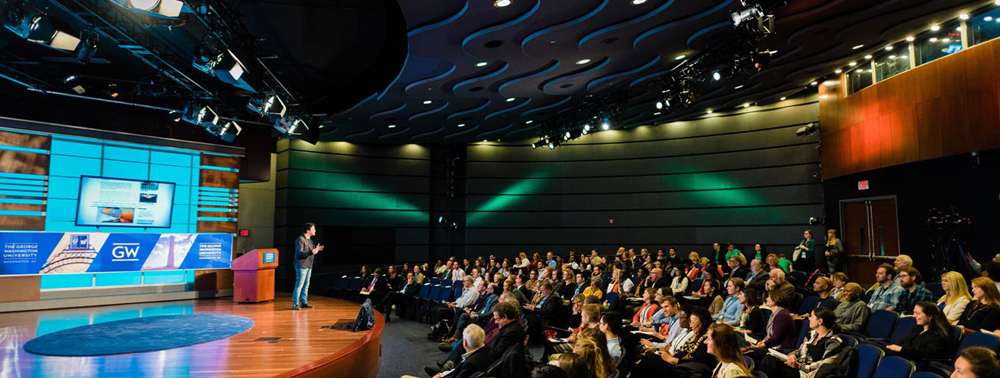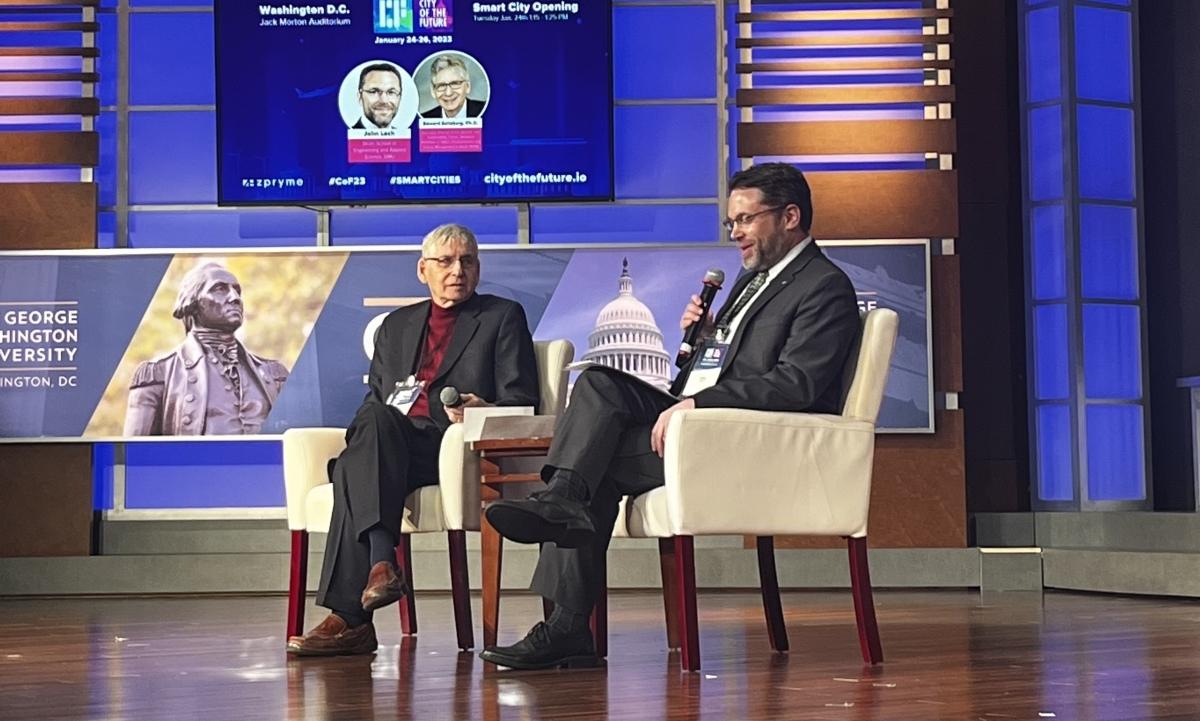On January 24-26, 2023, the SEAS-hosted GW Environmental and Energy Management Institute (EEMI) brought together some of the most prominent voices in cities, utilities, business, and activism to the Nation’s capital for three days of discussions to determine how cities can modernize to foster these attributes. The “The City of the Future” event was held in the University’s Jack Morton Auditorium.
To kick off the conference, SEAS Dean John Lach provided opening remarks and was interviewed on livestream by EEMI Director of Professional Education Dr. Ed Saltzberg. Dean Lach mentioned that the majority of global population currently lives in urban areas. The UN estimates that an additional 2.5 billion people will move to cities in the next three decades, although this isn’t evenly distributed around the globe. In fact, about 90 percent of global population growth will occur in Asia and Africa—while the proportion of the urban population in Europe and North America will actually decline.
He explained that universities like GW play a significant role in envisioning and creating the "city of the future" by conducting research and providing education in fields supporting sustainable urban living. This includes urban planning, smart transportation, advanced energy systems, sustainable health systems, information technology, public policy, and social justice, among others. Many universities partner with local governments and organizations to implement their research and provide technical assistance in developing smart cities. Additionally, universities are working to create more sustainable campuses, which serve as models for sustainable urban development.
A video of the opening session, “Smart City Opening with GWU,” featuring the interview of Dean Lach by Ed Saltzberg, can be seen at https://www.youtube.com/watch?v=8fAPsTuQg1M.
Another plenary session featured a discussion on “Transforming Cities Through Proven Energy Solutions in an ESG Framework” by EEMI Director of Renewable Energy Scott Sklar and active EEMI member and GWSB Professor John Forrer. A video of that session can be seen at https://www.youtube.com/watch?v=Np5EhHe1myc.
Yet another highlight of the event was a panel moderated by active EEMI member and European Commission official Mercedes Garcia Perez, Head of Global Issues and Innovation at the European Commission Delegation to the United States, on “Designing the Cities of Tomorrow: A Transatlantic Look at the Future of City Life.”
That panel discussed how environmental impacts and aging populations are leading to significant disruptions that require new thinking. Currently, 70 percent of urban residents in rapidly expanding Asian and African cities lack access to one or more core services like electricity, water, or sanitation and even cities here in Europe are not immune from water, power, and public health challenges that often disproportionately impact certain segments of our society. A video of Mercedes’ panel can be seen at
https://www.youtube.com/watch?v=U7blfCulJ1w.
Other key speakers at the event included Professor Samer Hamdar of the SEAS Department of Civil and Environmental Engineering, and Frank Sesno, Director of GW’s School of Media and Public Affairs.
Overall, the conference covered topics as diverse as environmental challenges, housing, impacts of a changing climate, population shifts, and economic and social divides that lead to significant disruptions in public well-being, requiring new thinking about how government and utility services are planned and delivered. The various sessions touched on how to engage communities, evolving customer and workforce needs, electrification and the path to net zero, and much more.




